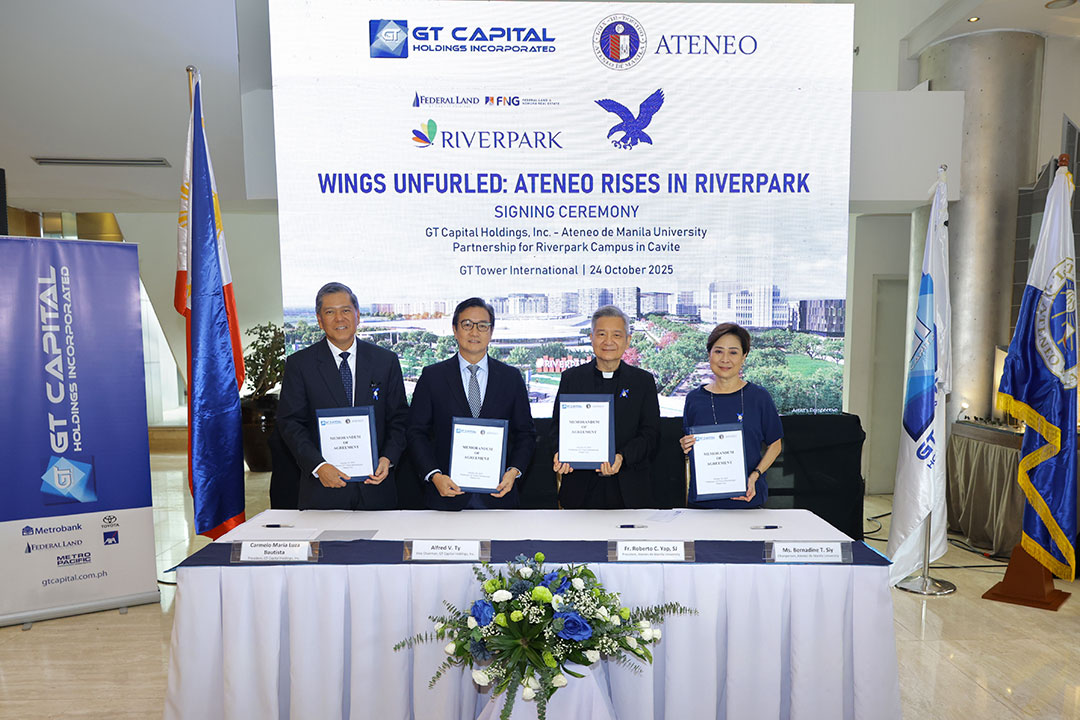
Upgrade to High-Speed Internet for only ₱1499/month!
Enjoy up to 100 Mbps fiber broadband, perfect for browsing, streaming, and gaming.
Visit Suniway.ph to learn
In every organization, a persistent, inconvenient truth lurks: we sometimes simply don’t like our co-workers. The reasons range from clashing personalities and work styles to offhand remarks that sting. In the complex reality of the workplace, personal chemistry is not always a luxury we can afford to demand. What matters more is a shared commitment to results—and the ability to keep personal feelings from corroding professional performance.
Bartleby in The Economist notes the on-screen relationship of C-3PO and R2-D2, the two robots in the Star Wars films. While the characters portray a touching connection, the actors behind the robots reportedly did not get along. Similarly, a key player for the NBA’s Golden State Warriors confessed he didn’t like another star, yet they worked well together on court.
Antipathy, when unmanaged, can drain energy, morale, and productivity. But handled with maturity and structure, it need not be fatal to teamwork. Many of the most effective teams learn to thrive despite personal differences, bound instead by purpose, professionalism, and mutual respect.
A key concept that explains much workplace misunderstanding is what psychologists call the fundamental attribution error. We tend to attribute others’ actions to their personality rather than to external circumstances. When a co-worker misses a deadline, we might instantly assume they’re lazy or disorganized, instead of considering they may have been overloaded or given unclear instructions.
Social psychologists Lee Ross and Richard Nisbett famously demonstrated this bias: observers overemphasize internal traits when judging others, while underemphasizing situational factors. This skewed lens becomes toxic in workplaces where collaboration is constant and stakes are high. Once we’ve labeled someone as “difficult” or “unreliable,” every future interaction is filtered through that bias. This misattribution often converts task conflict—a healthy debate about ideas—into relationship conflict.
How workers can rise above antipathy
1. Reframe traits as constraints. Instead of assuming personality flaws, look for contextual explanations. Ask yourself, “What situational factors might explain this behavior?” By reconstructing the situation, you reduce blame and open paths for problem-solving.
2. Focus on the superordinate goal. Classic experiments, such as Muzafer Sherif’s Robbers Cave study, revealed that hostile groups reduced conflict when given a shared goal that required cooperation. Emphasize shared targets, client needs, or deadlines that demand joint success. A vivid sense of collective purpose can eclipse petty animosities.
3. Argue the work, not the worth. Keep disagreements tied to ideas, evidence, and outcomes. Structured tools—like pre-mortems, decision logs, and clear definitions of success—help depersonalize debate. When conversations stay anchored on the “what” instead of the “who,” even opponents can find common ground.
4. Practice micro-safety. Google’s Project Aristotle found psychological safety to be the top driver of team effectiveness. This is essential for team members to feel safe enough to speak up, share ideas, questions, concerns, and mistakes without fear of embarrassment or humiliation. Small acts of civility compound into big trust.
What managers can do
* Set process before personalities. In aviation, high-stress crews don't depend on likeability; they rely on structure: standardized briefings, defined roles, and clear communication to prevent human friction from escalating into disaster. The workplace equivalent is clear workflow protocols, decision rights, and feedback loops.
* Make the “shared why” non-negotiable. Managers must relentlessly clarify purpose: what the team is trying to achieve that no one can do alone. When rewards and recognition are tied to collective outcomes, grudges have less room to grow.
* Bound the fight. Leaders should define what kinds of debates are welcome (ideas, priorities, risks) and which are out-of-bounds (motives, personalities, gossip). Research shows that unmanaged relationship conflict corrodes performance; early, fair intervention preserves trust.
* Model attribution hygiene. Leaders must narrate situations before judging behavior. This teaches teams to analyze circumstances before casting blame, fostering an environment where problems, not people, are fixed.
* Use decision scaffolds. Require written alternatives, pros and cons, and explicit reasoning for big calls. Documentation makes disagreements about ideas transparent and reduces the temptation to personalize differences.
When friction helps
A measure of friction can be healthy. Constructive dissent fuels innovation, challenges assumptions, and prevents complacency. Diverse teams outperform homogenous ones on complex tasks precisely because they argue and test ideas from multiple angles.
The key is framing disagreement as a contest of ideas, not a clash of egos. When debate is governed by respect and curiosity, friction becomes the grit that sharpens strategy. Some of the world’s best organizations cultivate “productive tension” as a cultural norm, knowing that challenge, when channeled, leads to better answers.
Teams don’t have to be friendship circles to excel. They need systems, self-awareness, and shared commitment. Workers who learn to separate personal preferences from professional purpose can achieve harmony through structure rather than affection.
Still, let’s be honest—it’s better when we actually like each other. Affection and camaraderie smooth communication, foster trust, and make collaboration not just effective but enjoyable. People who enjoy working together are more generous with information, more resilient under stress, and more forgiving of mistakes.
In the end, we don’t have to be friends to win together—but it certainly helps. A team that can challenge ideas without challenging worth, and that can work with respect even amid differences, is not just functional—it’s formidable.
(Benel Dela Paz Lagua was previously EVP and Chief Development Officer at the Development Bank of the Philippines. He is an active FINEX member and an advocate of risk-based lending for SMEs. Today, he is an independent director in progressive banks and in some NGOs. The views expressed herein are his own and do not necessarily reflect the opinion of his office as well as FINEX.)

 3 hours ago
1
3 hours ago
1



